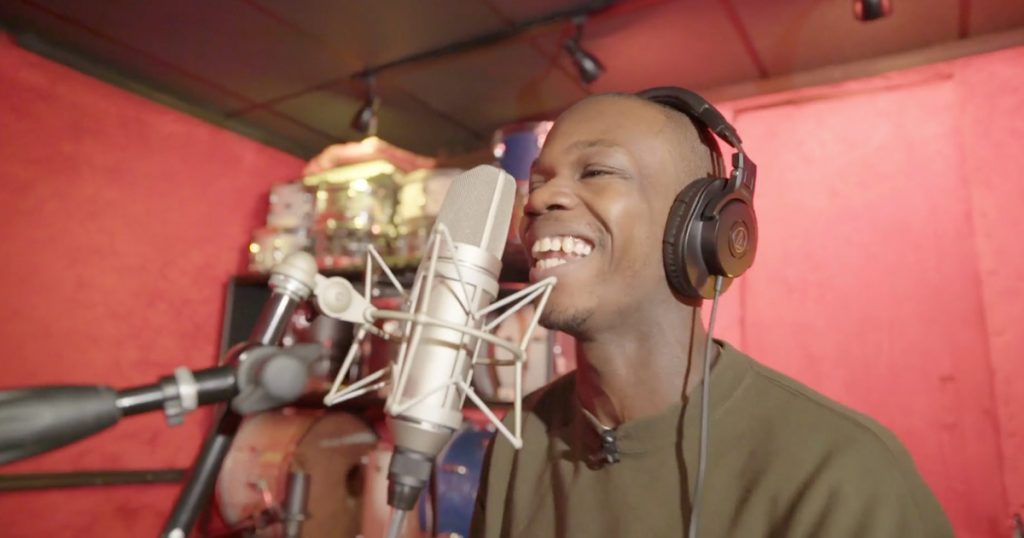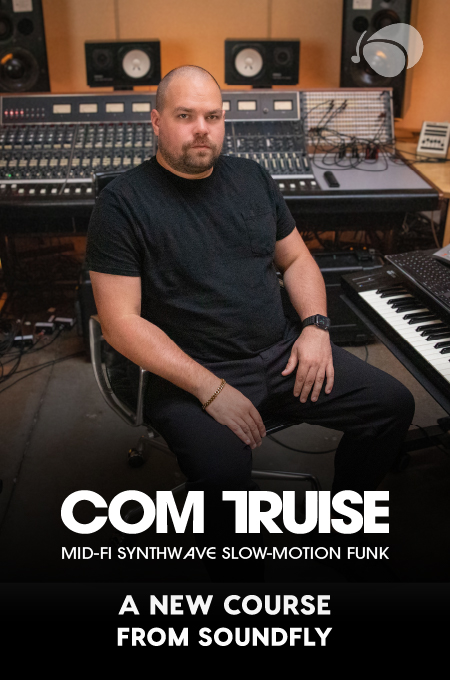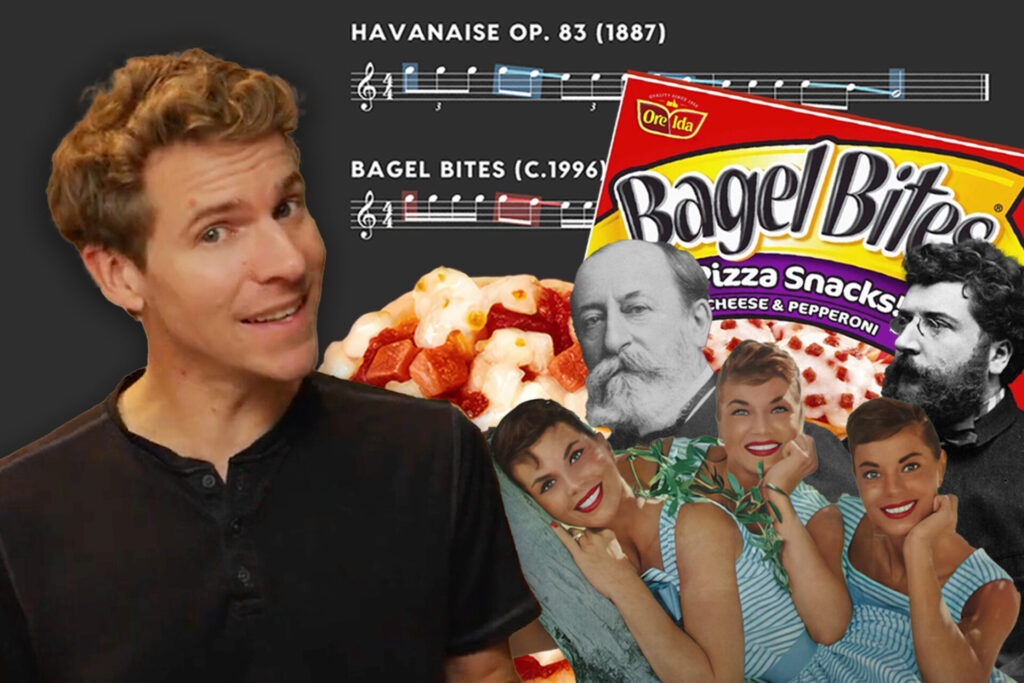+ Learn from Grammy-winning pop artist Kimbra how to harness the full creative potential of your voice in song. Check out her course.
You might be thinking, “a song can’t write itself.” Sure, a person writes a song, but that’s not quite what I’m getting at. For me personally, the best ideas for songs just happen to flow out naturally and without much thought required.
Michael Jackson stated, “Thinking is the biggest mistake a dancer could make. You have to Feel.” Whether it’s songwriting or dancing, being overly self-critical or analytical when it comes to art is a surefire way to prevent yourself from reaching your full potential.
Music is an art form, and it’s expressive. It shouldn’t have to be calculated or forced. To create a song that’s authentic to you, you’ll most likely enjoy the writing process, and it feels very natural.
So how does this happen? Can you learn to make a song write itself? In this article, we’ll explore everything surrounding organic songwriting, and I’ll share some tips I use to foster a writing process that feels therapeutic. Let’s dive right in!
But what makes songwriting feel organic?
Songwriting feels organic when performed with intention and without too much self-awareness. The result is something that just comes out naturally because the artist was simply feeling what they were working on.
Is Songwriting Always Organic?
Everyone writes music and conjures up ideas in different ways. I find that ideas arise best through experimentation and when I already have some sort of foundation to work from on a DAW. I find it hard to write from a completely blank canvas.
For others, songwriting can be done mainly behind a piano or acoustic guitar. Each person may have a different process that works for them.
Often songwriters have some sort of idea of what they want to achieve with their songs before starting to write, in terms of a creative vision, and other times, they come up with entirely new ideas on the fly.
However an artist chooses to write their music, what’s essential is that songwriters allow themselves to be expressive and let the ideas form without too much control or judgment.
The opposite of an organic process is one that is forced. A forced songwriting process is one that is likely to require an overly analytical mind, and a mind that focuses on perfection and solving problems rather than being creative.
If you’re in a positive space while writing music, as opposed to feeling stressed, it’ll come through in your songwriting. So here are some tips to help you to cultivate an organic writing process.
+ Learn production, composition, songwriting, theory, arranging, mixing, and more; whenever you want and wherever you are. Subscribe for full access!

Tips for Encouraging an Organic Writing Process
Try to have an open mind.
In order to have an open mind, it’s crucial to relax and not take yourself so seriously. Don’t worry about how things are “supposed to sound” or how you need to fit into a certain mold. Experiment with sounds and techniques until you hear things you like, and continue to build on these ideas.
You’ll most likely discover unique and interesting sounds or melodies that work better than what you would have done if your planning had been meticulously calculated beforehand.
If you have an open mind as opposed to a critical mindset, you’ll more likely focus on the positive elements in the songs you’re writing and less on the negatives, or what isn’t working.
Try to remove any self-imposed limitations, for example, be open to new techniques and incorporate elements from other styles of music. This type of shift in perspective will help you see ideas from a new angle; you may discover that something you didn’t previously like can actually be turned into something special.
Accept imperfection.
Everyone wants their songs to be perfect. But spending huge amounts of time refining a song is not only time-consuming, but it also makes it hard to find enjoyment in a piece of music if you’re constantly analyzing it and struggling to make it perfect.
A songwriter might go through several edits or iterations of a song, that’s natural. But it’s important to remember that you won’t ever achieve something ‘flawless’ . What’s often forgotten is how to engage the listener with the content being presented.
If you spend so much time on an idea, overthinking and editing, you might lose sight of what it is that’s actually working in the song as a whole. You’ll also be focusing on the negatives, which isn’t cultivating a healthy internal dialogue.
+ Read more on Flypaper: “Things I Wish I Knew Before Becoming a Professional Songwriter”
Embrace a relaxed mindset.
One of the best ways to foster an organic songwriting process is to embrace a relaxed mindset. This doesn’t mean that you should be lazy or not be discerning when it comes to music, but rather that you should be receptive to inspiration and new ideas that may arise.
When you’re approaching a songwriting session, try not to have too many expectations about what this piece of music will sound like or about how it should go. It’s sometimes best to let a composition take its own course and see where the music leads you.
You might discover things you didn’t know about yourself as a musician, and it can help you break outside your comfort zone and try new things.
Let it happen naturally.
Obviously, you should trust yourself to know when an idea doesn’t sound right or isn’t working, and instead of trying to force it, try something else. But when something new or exciting catches your attention, run with it!
If you’re open to possibilities and trying new things, the creative process should flow much more naturally.
Don’t be afraid to venture into uncharted territory. If a seemingly random idea sparks your interest, follow that thread for a while and see how it develops. It could lead to something totally unexpected! Creativity can arise from anywhere and when you least expect it! So embrace it and let the music take you where it wants to go.
Here’s a video from Soundfly’s course, Ryan Lott: Designing Sample-Based Instruments, in which Ryan explores his process based on letting accidents and experiments drive his creative path towards songwriting.
Final Thoughts
I love it when songwriting feels organic, and I’m really enjoying the direction of where the music is heading. It’s not always like that, however. I also find the ideas don’t come to me from time to time like most people. But when the ideas are flowing, I’ve written complete songs in a day. Or should I say, “the song wrote itself!”
I hope this article has shared some insights into how you can foster an organic songwriting process by being open to new ideas and embracing spontaneity in your creative process.
I also discussed the importance of cultivating a relaxed mindset, as well as stepping outside of your comfort zone to help you come up with something entirely unexpected.
Don’t stop here!
Continue learning with hundreds of lessons on songwriting, mixing, recording and production, composing, beat making, and more on Soundfly, with artist-led courses by Kimbra, Com Truise, Jlin, Ryan Lott, and the acclaimed Kiefer: Keys, Chords, & Beats.
—
Gideon Waxman is a London based drummer and music educator, who holds a Bachelor of Music degree from the University of Westminster. You can find more of his advice over at Drum Helper — one of the web’s most popular free online drumming resources.




